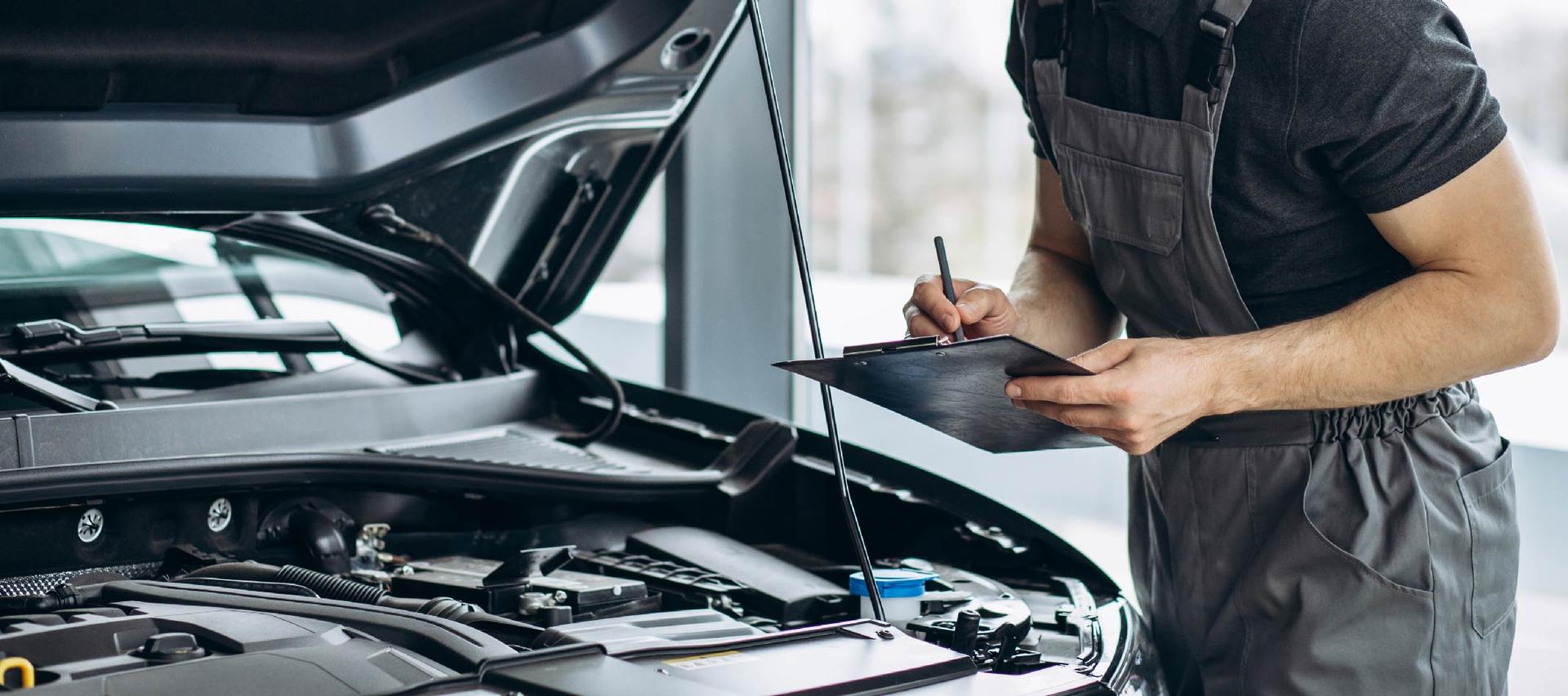Do I need an MOT? The importance of servicing a car
Buying a used car? Find out all you need to know about the importance of servicing a car and why your used vehicle needs regular MOTs in this blog!

The importance of servicing a car: all you need to know about servicing and MOTs for used cars
Buying a used car? That's exciting! If you're wondering what it means in terms of MOTs and servicing, read on to learn all you need to know.
Do I need an MOT?
First things first, it's important to remember that MOTs are a legal requirement for all cars that are over three years old.
If you're buying a used vehicle, there's a good chance you'll have to get it checked on an annual basis, as – in most cases – it's likely to have been registered more than three years ago.
MOTs are designed to check the roadworthiness of your motor, making sure it's fit to drive without the risk of avoidable breakdowns and safety issues.
If you're caught driving without a valid MOT certificate, you could be fined up to £2,500, get three penalty points on your licence, and even receive a driving ban. So, for your pockets' sake and everyone's safety, it's always crucial to get your MOT booked once a year.
When is an MOT needed?
Once your vehicle has turned three years old, it needs to undergo a thorough test every year. But when should it be carried out?
By law, you must get an MOT for your car by either the third year of its registration anniversary or – if it's an older motor – within a year of its latest test.
When buying a used car, your seller should be able to provide you with the vehicle's most recent MOT certificate. This will give you a clear idea of when you’ll need to take it to an MOT centre for its annual inspection.
Top tip
If, for whatever reason, you don't have your MOT certificate on hand or can't remember your car's MOT anniversary, you can use the Government's online MOT checker tool.
All you need is your plate number and your 11-digit vehicle identification number - this will give you the answer you're looking for!
What if my used car's MOT issues haven't been rectified?
Ideally, the seller will have already addressed the issues and repairs flagged by the car's latest MOT. But what if they haven't?
Well, let's start with the worst-case scenario first. If the vehicle has failed its MOT due to major safety faults, you won't be able to jump behind its wheel until you've rectified the problems and the car has undergone another MOT. This will require immediate financial outlay to carry out all the necessary fixes, as well as a brand-new test.
Likewise, if the MOT has highlighted some issues that haven't been addressed, it will be your responsibility – as the new owner – to get them sorted. However, if you’re on a tight budget, you might want to negotiate with the seller and ask them to handle the repairs themselves before you make the purchase.
What about minor faults? When it comes to MOT advisories that don't prevent the car from passing its inspection, these lighter issues can be taken care of at a later date. This is because the faults are currently not serious enough to put you and other road users at risk of safety hazards.
So, if you're using Hire Purchase (HP) to finance your vehicle, you'll want to factor in the expense of future repairs as part of the car's overall running costs and HP instalments. This way, you'll have a more comprehensive picture of how much you can expect to pay to keep your used motor on the road.
The importance of servicing a car
A good service history is often a reliable indicator that a car has been maintained well over the years.
If you're buying a used car, you can ask to take a look at the motor's service book. This will contain a record of all the services and repairs that have been carried out, allowing you to understand whether the previous owner has taken good care of the vehicle.
The record book also shows the car's mileage at the time of each service. If there are discrepancies between mileages, it might be a sign that the records are incomplete or that someone has tampered the odometer to reduce the mileage. In the latter case, this could act as an unethical – and illegal – trick to make the car more appealing to buyers and increase its value.
Once you've purchased your car, it's important to service it regularly. Although it may seem like a costly expense at first, servicing your car brings a wide range of benefits (and will save you a lot of money, too). For example:
- safety – regular servicing keeps your car in good condition, meaning you'll be as safe as can be as you cruise around town. During a car service, technicians will inspect the car's vital components (i.e., brakes, suspension, and exhaust system) and check things such as tyres, external lights, and wipers;
- prevent car breakdowns – by keeping your car in check, you can detect potential faults in advance and avoid unwanted breakdowns. Ultimately, prevention is better than cure, as breakdowns can be a costly and stressful experience;
- fuel efficiency – another advantage of regularly servicing your car is that it will reduce your fuel consumption. This is because a well-maintained vehicle works more efficiently and uses less fuel to clock up the miles. As well as saving money on your petrol or diesel bills, you'll also have a gentler impact on the environment.
Check out our 'How to check your vehicle's MOT status' blog to find out more about MOTs, from what they cover and how much they cost, to which vehicles are exempt from needing one! 👆
Information includes references to:
RAC - Driving without an MOT – what’s the risk?
GOV.UK - Check the MOT status of a vehicle
You may also like...
Feb 2026
Should you pay monthly or annually for car insurance?
Hannalore | Jan 2026





